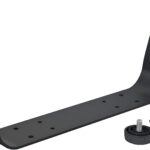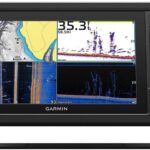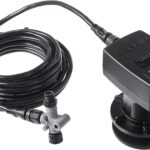Ever thought about the steps you could take to make your fishing experience more successful? You’re in for an interesting journey as “The Science Behind Successful Fishing: What Research Tells Us” broadens your horizons. It links scientific research to the sport of fishing, offering unique insights into how to boost your success rates. From understanding the behaviors of different fish species to the utilization of the most effective fishing gear, this article will illuminate these topics in a whole new light. Prepare to elevate your fishing endeavors through the eye-opening revelations from the world of science that this article brings to your fingertips.
Understanding Fish Behavior
Understanding fish behavior is crucial for successful fishing, as it allows you to predict and identify patterns that increase your chances of a good catch. More than just instinct, fish behavior is a lot about adaptation and learning, making them interesting subjects for scientific studies.
Fish Senses and Perception
Fish, like humans, leverage various senses for survival. They use their sight to find food, evade predators, and find mates. Further, fish can ‘hear’ using lateral lines that detect vibrations in water, helping them navigate and find prey. They also have a well-developed sense of smell for locating food or avoiding danger. Understanding these senses can guide how you approach fishing, making your efforts more successful.
Social Behavior of Fish
The social behavior of fish is another critical aspect of their lives. Most fish species are schooling, which means they move collectively. This trait can be used to your advantage while fishing. That said, not all fish school, and understanding the social behaviors of the specific species you are targeting is crucial.
Migration and Feeding Patterns
Fish migration and feeding patterns can be predictable or unpredictable, often driven by seasonal changes and availability of food. Some species travel thousands of miles annually while others remain within a small radius. By learning their feeding and migration patterns, you can anticipate where the fish will be and increase your chances of a successful catch.
Water Conditions and Fish Activity
Water conditions can largely influence fish activity. Hence, keeping tabs on these conditions can help enhance your fishing.
Temperature and Fish Behavior
Fish are ectothermic creatures, which means they depend on the water’s temperature to regulate their body heat. Thus the temperature can affect their metabolic rates, feeding, and breeding behaviors. Cold water can slow down a fish’s metabolism making it less active, while warm water often stimulates activity.
Effects of Water Clarity
Water clarity can affect how well fish can see, and in turn, forage. Clear water means fish rely heavily on vision, while murky water forces them to depend on other senses such as touch and hearing. Thus, the choice of fishing methods and lures can change depending on the water clarity.
Rain and River Flow Rates
Rain can significantly affect river flow rates, altering fish’s behavior in these systems. Directional changes in the currents can cause fish to relocate or regroup. Heavy rainfall can also temporarily increase river productivity, attracting fish to certain areas.
Moon Phases and Fishing Success
There is some correlation between moon phases, tides, and the success rate of fishing. Therefore, understanding these can often prove to be a boon.
Moon Phases and Tidal Movements
Tides are caused primarily by gravitational forces exerted by the moon. High tides can drive fish toward the shore to forage, making them easier to catch. Many anglers swear by the benefits of fishing during the full and new moon due to the stronger tides.
Night Fishing and Lunar Light Levels
Lunar light levels can influence the feeding behavior of certain species. Some fish are more active on bright nights, while others prefer darker conditions. Therefore, taking into account the lunar phase when planning your fishing trip can be beneficial.
Solar-Lunar Influence On Fishing
The solar-lunar influence, often termed as ‘Solunar Theory,’ suggests that fish are more likely to feed at specific times of the day. By aligning your fishing schedule with these periods, success rates can be improved significantly.
Seasonal Trends in Fishing
Each season brings changes to fish behavior, affecting their feeding habits, location, and activity levels. Assessing these trends maximizes your chances of a great catch.
Seasonal Fish Behavior
Fish behavior alters drastically with the seasons. In spring, they’re often found in shallow waters for spawning. Summer can drive them to cooler, deeper waters. As autumn approaches, they can become very active, feeding heavily to prepare for winter. Therefore, understanding these seasonal behaviors can refine your fishing strategies.
Best Fishing Times by Season
There isn’t a one-size-fits-all answer to the best time for fishing. However, typically early morning and late evening are great times for fishing. Moreover, the best time can vary based on the species you’re after and the time of the year.
Impact of Weather Changes on Fish
Changes in weather also impact the behavior and activity level of fish. Pressure changes associated with a storm can trigger feeding frenzies, while a sudden cold snap can make them less active. By adapting to these weather conditions, you can improve your results.
Fishing Techniques and Scientific Insights
Successful fishing requires not just understanding the fish but also mastering various fishing techniques. Research in this field offers valuable insights that can enhance your fishing skills.
Understanding Various Fishing Methods
From using a simple rod and reel setup to more complex methods like fly fishing, each method has its techniques and nuances. By understanding the working of each, you can increase your chances of successful fishing.
Research on Effective Fishing Techniques
Research plays a crucial role in unravelling effective fishing strategies. It provides insights on what works and what doesn’t – facts that can be used to hone your fishing techniques.
Technological Advances in Fishing
From GPS enabled fish finders to underwater cameras, technology has revolutionized fishing. These technologies provide a wealth of information in real-time, increasing fishing efficiency and success rates.
Using Bait and Lures Effectively
Knowing when and how to use different types of bait and lures is another key factor in successful fishing. Research has shed light upon how these aspects can influence the attraction of fish.
Scientific Analysis of Different Baits
Studies have shown how different kinds of bait can attract different kinds of fish. Live bait mimics natural food, often attracting a wide variety of species. Artificial lures serve specific purposes, like simulating injured fish to attract certain species.
Impact of Color and Vibration on Attracting Fish
Research suggests that the color and vibration of baits and lures can play a significant role in attracting fish. Bright colors and high vibration patterns can often increase visibility and give off an illusion of prey movement.
Understanding Fish Attractants
Fish attractants like scents and flavors can significantly enhance bait efficacy. Research shows that fish, with their keen sense of smell, can be drawn towards baits laced with specific scents or flavors, enhancing your chances of a successful catch.
Fish Species Specific Research
Each species of fish behaves distinctively. Specific species-based research can provide insights that can be instrumental for targeted fishing.
Distinctive Characteristics of Fish Species
Every fish species has unique traits and characteristics. These differences often necessitate different fishing techniques. So, understanding these species-wise traits is essential to maximize your catch.
Habitat Preferences of Various Fish Species
Each species also has specific habitat preferences. Trout might prefer moving waters of a river, while carp are more at home in still, warm water. Knowing the habitat needs of the fish you’re after can lead you directly to them.
Effective Strategies for Targeting Specific Fish
Developing effective strategies to target specific fish involves understanding their feeding habits, preferred habitats, and behaviors. Research provides valuable information that can guide these strategies.
Conservation Efforts and Sustainable Fishing
As fishing has significant ecological impacts, understanding and adopting sustainable practices is vital.
The Importance of Conservation Efforts
Conservation efforts are essential to maintain fish populations and their habitats. They help prevent overfishing, habitat destruction, and ensure the health of our aquatic ecosystems.
Research on Fish Population Dynamics
Scientific research on fish population dynamics informs conservation efforts and fishing regulations. It helps understand the impact of fishing on different species and aids in the development of strategies for sustainable fishing.
Impact of Overfishing and Sustainable Practices
Overfishing can have dire consequences on fish populations and ecosystems, highlighting the need for sustainable practices. Adopting strategies like catch-and-release, using proper gear, respecting size and bag limits can significantly contribute to conservation.
Psychological Factors in Successful Fishing
Apart from understanding fish behavior and masterful techniques, successful fishing also involves the right mindset.
Mindset and Patience in Fishing
Fishing demands patience. There are typically more quiet spells than thrilling pulls. Maintaining a positive mindset even when the fish aren’t biting, can make the difference between a good and a frustrated angler.
The Role of Experience and Intuition
Experience and intuition play a significant role in fishing. With experience comes familiarity with fish behaviors, habitats, and effective techniques which no book can teach. Similarly, intuition helps make decisions when conditions aren’t textbook perfect.
Coping with Uncertainty in Fishing
One of the most important skills in fishing is dealing with uncertainty. Fishing is largely unpredictable, and your ability to adapt to changing conditions and not get disappointed with unsuccessful attempts is crucial.
Future Trends in Fishing Research
Research in fishing is evolving rapidly, focusing on various areas like climate change, technology, and fish biology.
Potential Impacts of Climate Change on Fishing
Climate change is projected to have significant effects on fish distributions and populations. Future research in fishing will likely focus on understanding these potential impacts and finding ways to mitigate them.
Innovations in Fishing Gear and Technology
Innovation and technology development in fishing gear can drastically change fishing practices. Future trends may include more sophisticated fish finders, advanced rod technology, and more.
Emerging Research in Fishing Science
Emerging research in fishing science is continually shedding light on fish behavior, habitat, physiology, and other factors. This research, combined with advances in technology, promises more efficient and sustainable fishing in the future.










